Algorithms and Analytics: Connecting the Learner and the Learning
Algorithms and Analytics: Connecting the Learner and the Learning
October 23, 2019
CERAS #101, Stanford University 8:30am to 4:45pm
CLICK HERE for the Schedule
Measuring, analyzing, and reporting data about learners, learning experiences and learning programs have all contributed to understanding and optimizing learning experiences.
A wide variety of new media, tools and practices in education continue to expand options for measuring attention and engagement in sensory experiences, as well as learners’ physical, cognitive and emotional responses. These frontiers are moving forward quickly.
To better accomplish learning – both personalized and at scale – many of these measurements, and the feedback they provide, are being instrumented and automated. Even with the consideration of integrative competencies such as critical thinking, decision making and grit in learning objectives, the algorithms driving many learning analytics are yet based primarily on objective functions that derive mainly from content mastery goals.
It’s time to carefully examine which indicators of learning are most meaningful. And which can be used ethically in algorithms for personalized learning and for learning at scale. And how data can be tagged for open exchange.
Join us at Stanford on October 23rd as experts and members in the mediaX community explore the frontiers of learning algorithms and analytics that connect learners with learning.
1. Measuring what matters in learning
2. Designing learning experiences and algorithms for conversation
3. Developing metatags for open exchange
Presenters
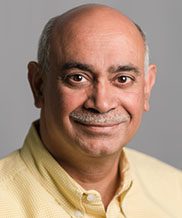
Ajay Madhok is the Founding Partner of Reboot Digital and an Advisor to Playground Global. He is a growth architect, challenging norms to uncover technology-powered growth opportunities, calibrating businesses for commercial success, by enlisting entrepreneurial talent to deliver outcomes via purpose-built startups. Ajay’s re-imagination experience includes building four ventures, with two getting acquired, one merged, and one acqui-hired. He is an expert in product innovation and ecosystem development for a range of industries including Telecom, Media, Education, Logistics, and Financial Services. He is currently researching innovation models that large enterprises can practice to stay competitive and relevant, avoiding patterns that limit growth. The purpose-built startup is one such model that draws on his experience in combining foundational assets of an enterprise with startup talent to create new value.

Robert Moore is a research scientist at IBM Research-Almaden, where he examines the intersection of human conversation and technology. He has recently co-authored the book, Conversational UX Design: A Practitioner's Guide to the Natural Conversation Framework. In the past, Dr. Moore has worked as a scientist at Yahoo! Labs and the Xerox Palo Alto Research Center (PARC) and as a game designer at The Multiverse Network. He holds Ph.D., M.S. and B.A. degrees in sociology with concentrations in ethnomethodology, Conversation Analysis and ethnography.

Mark Musen is Professor of Biomedical Informatics at Stanford University, where he is Director of the Stanford Center for Biomedical Informatics Research. Dr. Musen conducts research related to intelligent systems, reusable ontologies, metadata for publication of scientific data sets, and biomedical decision support. His group developed Protégé, the world’s most widely used technology for building and managing terminologies and ontologies. He is principal investigator of the National Center for Biomedical Ontology, one of the original National Centers for Biomedical Computing created by the U.S. National Institutes of Heath (NIH). He is principal investigator of the Center for Expanded Data Annotation and Retrieval (CEDAR). CEDAR is a center of excellence supported by the NIH Big Data to Knowledge Initiative, with the goal of developing new technology to ease the authoring and management of biomedical experimental metadata. Dr. Musen chaired the Health Informatics and Modeling Topic Advisory Group for the World Health Organization’s revision of the International Classification of Diseases (ICD-11) and he currently directs the WHO Collaborating Center for Classification, Terminology, and Standards at Stanford University.
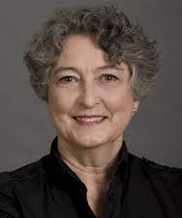
Martha Russell is Executive Director of mediaX at Stanford University and Senior Research Scholar with the Human Sciences Technology Advanced Research Institute at Stanford. Dr. Russell leads business alliances and interdisciplinary research for mediaX at Stanford University. With people and technology as the intersecting vectors. Russell’s background spans a range of business development, innovation and technology-transfer initiatives in information sciences, agriculture, communications, and microelectronics – for businesses, universities and regional development organizations. With a focus on the power of shared vision, Russell has developed planning/evaluation systems and consulted regionally and internationally on technology innovation for regional development.
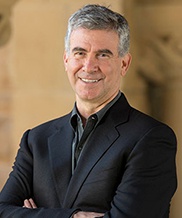
Daniel Schwartz is dean of Stanford Graduate School of Education and an expert in human learning and educational technology. Schwartz oversees a laboratory whose computer-focused developments in science and math instruction permit original research into fundamental questions of learning. He has taught math in rural Kenya, English in south-central Los Angeles, and multiple subjects in Kaltag, Alaska. This diversity of experience informs his work. Among many honors, Schwartz was named Graduate School of Education Teacher of the Year for 2015. His latest book, The ABCs of How We Learn: 26 Scientifically Proven Approaches, How They Work and When to Use Them, distills learning theories into practical solutions for use at home or in the classroom. NPR noted the book among the "best reads" for 2016.
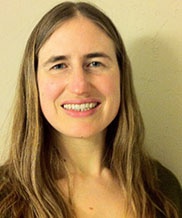
Emma Brunskill is an assistant professor in the computer science department at Stanford University where she leads the AI for Human Impact (@ai4hi) group. Her work focuses on reinforcement learning in high-stakes scenarios-how can an agent learn from experience to make good decisions when experience is costly or risky, such as in educational software, health care decision making, robotics or people-facing applications. She was previously on the faculty at Carnegie Mellon University. She is the recipient of multiple early faculty career awards, including from the National Science Foundation, the Office of Naval Research, and Microsoft Research. Her group has received several best research paper nominations and awards in top machine learning for education conferences and AI conferences.

Bruce Cahan is a Consulting Professor in Stanford’s School of Engineering, where he designs and applies new theories for creating a financial and insurance marketplace that improves regional quality of life systems. He is also CEO and co-founder of Urban Logic, a nonprofit that harnesses finance and technology to change how systems think, act and feel. He is an Ashoka Fellow and a CodeX Fellow at Stanford’s Center for Legal Informatics. Mr. Cahan was trained as an international finance lawyer at Weil Gotshal & Manges in NYC (10 years) and as merchant banker at Asian Oceanic in Hong Kong (2 years).
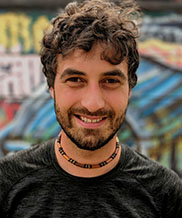
Chris Piech is an Assistant Professor of Computer Science Education at Stanford University. His research is in machine learning looking to understand human learning. He also believes that in 2019 there is a unique opportunity to build better learning experiences that serve more students. Chris is teaching CS398 which is a research-level course that explores ways to leverage; modern AI, online platforms and large datasets to address challenges in education. His PhD advisors are Leo Guibas and Mehran Sahami.
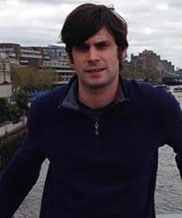
Nick Haber is an Assistant Professor at The Stanford Graduate School of Education. Nick is interested in machine learning, computer vision, and human-computer interaction. His work thus far has primarily involved face detection and tracking, using Constrained Local Models. On top of this, he developed engagement scoring, gaze tracking, and emotion detection for the purpose of testing and producing engaging content in online courseware. Currently, his efforts are directed at applying machine learning and computer vision techniques to recognize emotions, so that the device can provide feedback to its users in a way that helps them learn these cues on their own.
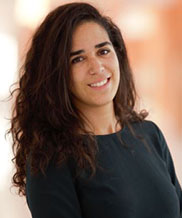
Sara Aouad is a project manager and eLearning specialist at the Digital Learning Lab at Mohamed VI Polytechnic University, Benguerir, Morocco.
At the DLL, her work spans from designing engaging and adaptive learning experiences to deliver STEM content to measuring the impact of the learning items on the learners. Her teams work revolves around experimenting with and building the supporting technology to deliver and exploring how different media affect the learning experience. She is interested in how people learn and process information and in determining the metrics that makes every person learn differently.
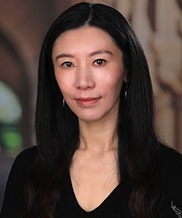
Karen Xiaolin Wang is a co-founder of Wisdom Academy. Wisdom Academy focuses on the development and application of innovative and cost-effective mind training tools, to enhance individuals’ cognitive ability, increase resilience, and promote long term physical and psychological wellbeing. They also have a particular focus on children and their caregivers, given that mind training is much cost-effective at a younger age due to neuroplasticity in early life. Wisdom Academy collaborates with several worlds leading academies, education groups as well as online platforms in the field. Before founding Wisdom Academy, Karen has been working with UNICEF for eight years, with a focus on psychosocial support for children, especially the disadvantaged ones.
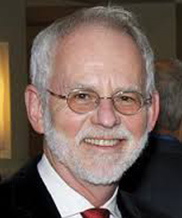
Roy Pea is the David Jacks Professor of Education and the Learning Sciences at Stanford University, Co-Founder and Faculty Director of the H-STAR Institute, Director of the PhD Program in Learning Sciences and Technology Design, and Professor, Computer Science (Courtesy). Since 1981, Dr. Pea has been exploring how information technologies can support and advance the scientific understanding and practices of learning and teaching, with particular focus on topics in science, mathematics, and technology education and their associated symbolic and communicative interchanges that are integral to learning. His current work is examining how informal and formal learning can be better understood and connected, and developing the DIVER paradigm for everyday networked video interactions for learning and communications. Other current research includes the influence of point of view on video-supported learning and collaboration; precollege mobile science inquiry and learning with sensors;and informal math learning in families.
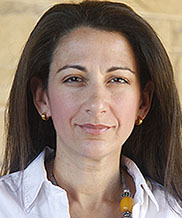
Janine Zacharia was Jerusalem Bureau Chief and Middle East Correspondent for the Washington Post from December 2009 through April 2011. During her time at the Washington Post, she reported widely throughout the Middle East beyond Israel, the West Bank and Gaza Strip, including assignments in Egypt, Jordan, Lebanon, Iraq, Bahrain, Saudi Arabia, the UAE and Turkey. She reported on the uprisings in Egypt and Bahrain as they began in early 2011. From 2005-2009, Ms. Zacharia worked as chief diplomatic correspondent for Bloomberg News based in Washington. During this period, she traveled to more than 40 countries with then U.S. Secretary of State Condoleezza Rice and other senior administration and military officials. Ms. Zacharia’s earlier career included five years as Washington bureau chief for the Jerusalem Post, and five years in Jerusalem working for various news outlets including the Reuters news agency. She was a regular contributor to the New Republic and has appeared routinely as a cable news analyst on MSNBC, CNN and other networks.